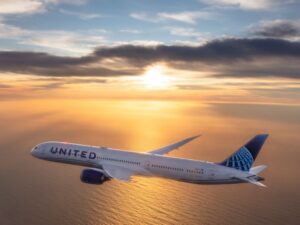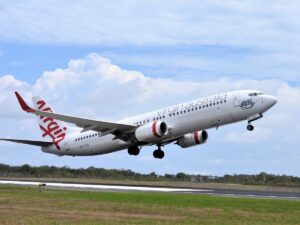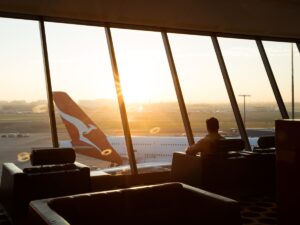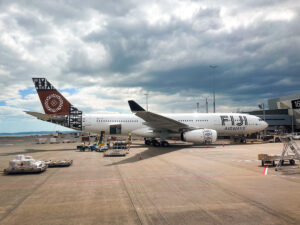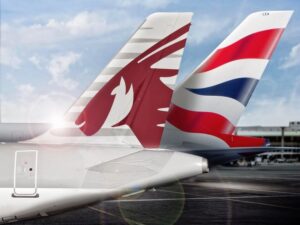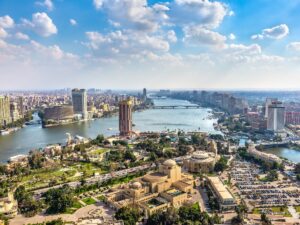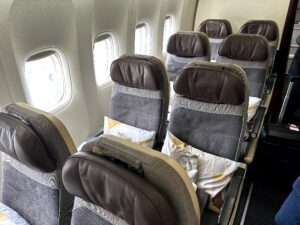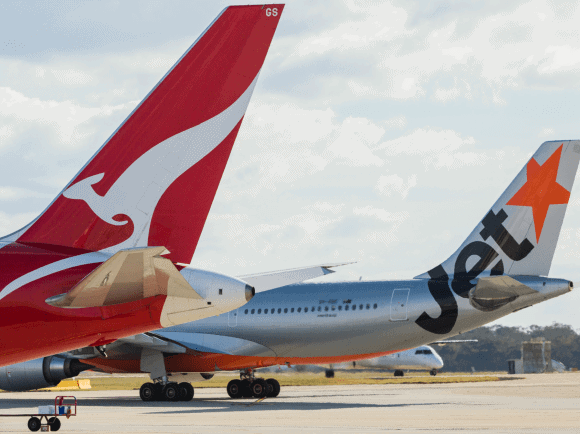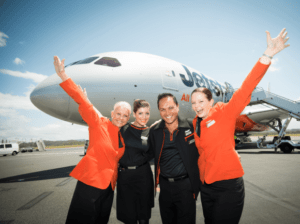From 1 April 2021, the federal government will subsidise 800,000 half-price domestic flights to encourage Australians to holiday interstate while international tourism remains non-existent. We don’t yet know exactly how these half-price flights will work, but we do know they’ll only be available on interstate routes.
On one hand, it’s great that the federal government is offering additional support to Australia’s airlines and regional tourism operators as they recover from the COVID-19 travel downturn and international visitors still aren’t able to come to Australia. But if Australia’s states and territories don’t keep their borders open, the entire scheme is futile.
If borders close again, many Australians will end up with taxpayer-subsidised plane tickets they simply can’t use. They won’t be able to travel interstate, and they won’t be able to spend their money with the struggling regional tourism operators targeted by the support package, either.
Since last week, all of Australia’s internal state & territory borders have been fully open for the first time since March 2020. That’s great news. But there’s no 100% guarantee that all borders will remain open into the future. With frontline border, healthcare and quarantine workers now being vaccinated against COVID-19, the risk is reducing. But if there is another significant COVID-19 outbreak somewhere in the country, it would not be surprising to see states closing their borders or imposing additional travel restrictions yet again.
Australians already want to travel. Many haven’t been on holiday or visited loved ones since the beginning of the pandemic. But the uncertainty surrounding state border closures has had a much, much bigger impact on people’s confidence to travel interstate over the past months – and therefore demand for flights – than the cost of airfares.
It doesn’t matter how cheap the flights are… if people are genuinely scared they’ll get stuck interstate, like many Victorians in NSW were over New Year, they won’t travel. Many thousands of Australians have already been caught out over the past year by border closures announced with little or no warning. In some cases, travellers were even forced into quarantine retrospectively, through no fault of their own, days after arriving from another state where a COVID-19 case was recorded. This experience has been traumatic for many, and it’s a case of once bitten, twice shy.
Even if the cost of airfares was deterring some interstate leisure travellers, prices on many routes have been coming down considerably over the last few months anyway. Rex and Virgin Australia are both selling $69 fares from Melbourne to Adelaide & Sydney to Gold Coast, and $79 Melbourne-Gold Coast fares. Last week, Qantas was offering $99 flights from five Australian capital cities including Perth to Adelaide. And last month, Sydney-Melbourne fares were available for as little as $49 on Rex and Virgin – or $29 with Jetstar. With the half-price flights to be based on the median airfare for any given route, there’s no guarantee they’ll be cheaper than the discounted airfares already available on many routes anyway.
Meanwhile, Queensland Treasurer Cameron Dick has argued that the scheme is inadequate because it doesn’t cover intrastate travel. “Why can’t Queenslanders be supported to travel to Queensland?” he said. “People in Brisbane and in the south east [of Queensland] want to go to Cairns but this scheme says no.”
Ironically, with nowhere else to go while state borders remained closed, Brisbanites have already been flocking to Cairns in droves since the middle of last year. In September 2020, Brisbane-Cairns was the busiest domestic air route in Australia by some margin (followed by Brisbane-Townsville). While passengers have now returned to the traditionally busy “golden triangle” routes, demand on the Brisbane-Cairns route remains high – without any subsidies being offered.
With JobKeeper ending this month, the impact of further border closures on Australian tourism businesses will already be felt more than previously. But if states also stand to miss out on the benefits of this support package if they close their borders, perhaps they’ll be less inclined to close them on a whim going forward. And perhaps this is precisely why the half-price flight scheme only covers interstate travel. If so, that’s a cunning move by the federal government.
But I would argue that a simple guarantee that state borders won’t close at short notice again, unless absolutely necessary, would stimulate more demand for interstate travel than government-subsidised plane tickets – and at no cost to taxpayers.
With Jetstar back to almost 100% of pre-covid domestic capacity, and other airlines getting close, demand for leisure travel is already returning anyway – without the need to spend hundreds of millions of taxpayer dollars. Growing confidence in state borders remaining open is helping with that, but a credible guarantee on state borders would seal the deal.
You can discuss the half-price flights scheme on the Australian Frequent Flyer forum, or leave a comment below in response to this article.
